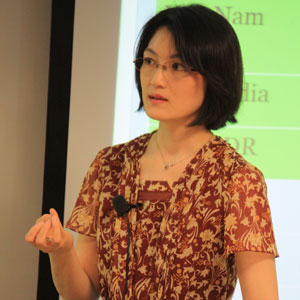Information
Venue
Start
End
3 May 2012 | CIL Seminar Series
Japan’s Investment Treaty Practice – The Scope and Function of Investment Treaties between Japan and ASEAN Countries
Introduction

Japan has concluded bilateral investment treaties (BITs) and Economic Partnership Agreements (EPAs) which include investment chapters with most ASEAN countries, including Singapore (collectively, “investment treaties”). Unlike traditional investment treaties which provide protection of foreign investments that are established in the host state in accordance with its domestic laws and regulations, investment treaties between Japan and ASEAN countries address the phase of admission of foreign investment as well as the protection of such investments (“pre-establishment model”). As the pre-establishment model concerns each host state’s sovereign right to take measures to regulate the entry of foreign investment, careful drafting and negotiation of an investment treaty of this type are required to ensure consistency of such regulatory measures and obligations with the treaty. Specifically, these treaties have annexes which specify regulatory measures and/or sectors that are excluded from the scope of certain investment treaty obligations (“reservation lists”). They also provide various exceptions such as security exceptions in the main text. A correct reading of such reservations and exceptions, in particular, examining of how an arbitral tribunal may interpret and apply such provisions is essential to understand the precise scope of investment treaties. A related issue is the function of the most-favoured-nation treatment (MFN) clause in the context of reservations and exceptions. That is, when an investor-state dispute arises, an MFN clause in an investment treaty may be invoked by the disputing investor to “incorporate” lists of reservations of another investment treaty, which are more favorable to foreign investor, into the former treaty. This will add another complexity to the issue of the function of an MFN clause, which has been interpreted in different ways by different investment arbitral tribunals. This seminar provided guidance on how to read and interpret reservations/exceptions in investment treaties between Japan and ASEAN countries and an examination of the function of an MFN clause with this regard. It is hoped that this seminar created a better understanding of these investment treaties for the effective use of such treaties by investors.
About the Speaker
Dr Tomoko Ishikawa is an Assistant Professor at the Waseda Institute for Advanced Study in Japan and a qualified Japanese lawyer. She received an LLM from the University of Tokyo, a second LLM from the University of Cambridge (Trinity Hall), and earned her PhD in public international law from University College London (UCL). Her professional experiences include serving as a Judge at Tokyo District Court and holding the position of Deputy Director at the International Legal Affairs Bureau of the Ministry of Foreign Affairs of Japan, where she worked on bilateral/trilateral investment treaties, Economic Partnership Agreements/Free Trade Agreements and WTO dispute settlement. She has also taught as a Teaching Fellow at UCL and as a Visiting Lecturer at Rikkyo University. Dr Ishikawa’s publications include: “Third Party Participation in Investment Treaty Arbitration”, International and Comparative Law Quarterly, (April 2010); “NGO Participation in Investment Treaty Arbitration” in Connected Accountabilities: Environmental Justice and Global Citizenship (Edited by Sivaram Vemuri;2010),); and (In Japanese) “Regulatory Consideration on “lender’s liability” of financial institutions in Japan’ (Hanrei Times Publishing Co. Ltd, January 2005). Her current research interests includethe law on foreign investment, international arbitration, treaty interpretation, international environmental law and international trade law.
Presentation
To download Dr Ishikawa’s presentation in PDF format, click here.


